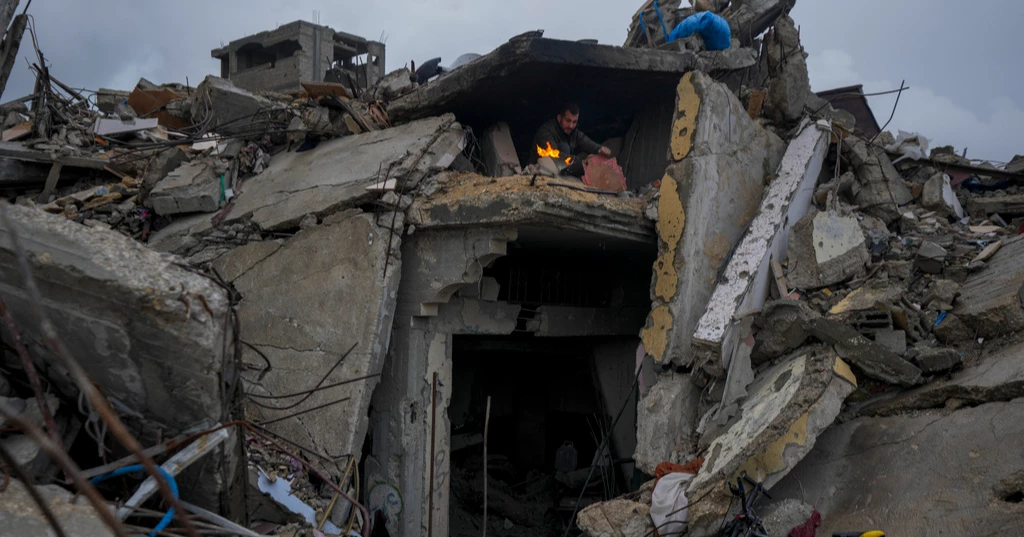Israel has started making arrangements for the departure of Palestinians from Gaza, despite widespread international opposition to President Trump's proposal to evacuate the region's population, reports AP>
Behind the scenes, Egypt has been actively lobbying against the plan, warning that it could jeopardise its peace agreement with Israel, officials said.
UN chief rejects 'any form of ethnic cleansing' in Gaza
Trump's administration has already scaled back elements of the plan, stating that the relocation would be temporary, though there are limited details on how or when it would occur.
In a recent social media post, Trump claimed that Israel would hand Gaza over to the U.S. following the war, with no U.S. soldiers needed for the redevelopment of the area.
Palestinians strongly oppose the proposal, fearing that Israel would block their return as refugees. Egypt has expressed concerns that the expulsion would destabilise the region and endanger its peace deal with Israel, which has been a key element of regional stability and American influence for decades.
Saudi Arabia, another major U.S. ally, has also rejected the forced transfer of Palestinians, stating it would not normalise relations with Israel without the creation of a Palestinian state that includes Gaza.
While Trump and Israeli officials present the proposed relocation as voluntary, Palestinians are resolute in their desire to remain in their homeland. Trump and Israeli officials have not detailed their response to Palestinians who refuse to leave, though human rights organisations argue that the plan would amount to ethnic cleansing, involving the forced removal of a civilian population.
Israeli Defence Minister Israel Katz announced Thursday that he has instructed the military to make preparations for facilitating the emigration of large numbers of Palestinians from Gaza via land crossings, as well as arrangements for sea and air exits. However, no immediate signs of such preparations have been observed on the ground.
Egypt's President Abdel-Fattah el-Sissi has not publicly responded to Trump's proposal but has conveyed Egypt's opposition through multiple channels to both the U.S. and Israel. The Egyptian government has called the relocation plan a “blatant violation” of international law and warned that it poses a threat to Egypt's national security.
Hamas, which controls most of Gaza, has condemned the plan, asserting that any U.S. takeover of Gaza would be viewed as an occupation, implying potential armed resistance. It remains uncertain if this will affect the upcoming release of Israeli hostages and Palestinian prisoners.
Initially, Trump suggested resettling most of Gaza's population elsewhere permanently, with the U.S. taking responsibility for rebuilding the region. However, U.S. officials later scaled back the proposal, stating the relocation would be temporary, with no commitment to deploying U.S. troops or using American taxpayer funds for reconstruction.
Egypt has made clear that it believes Palestinians do not need to be relocated for Gaza's reconstruction to proceed and reiterated its support for the creation of a Palestinian state. Israel, however, opposes Palestinian statehood and insists on maintaining control over Gaza and the occupied West Bank.
In a recent editorial, Egypt's state-run daily, Al-Ahram, warned that the independence of Arab nations, their unity, and territorial integrity are under serious threat due to the proposal.
Trump's suggestion the US 'take over' the Gaza Strip is rejected by allies and adversaries alike
European countries, including Spain and Ireland, have rejected calls to absorb Palestinians. Spain's Foreign Minister José Manuel Albares firmly stated that Gaza belongs to its people, while Ireland reaffirmed its stance that the goal must be to ensure the safe return of Palestinians to their homes.
